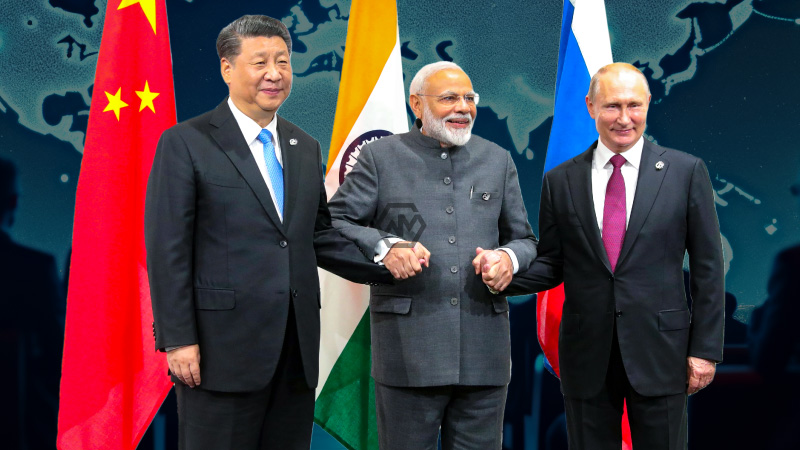- China has signaled openness to restarting trilateral talks with Russia and India.
- The RIC format aims to enhance regional security and multipolar cooperation.
- Revival hinges on normalizing India-China relations post-border tensions.
China has expressed willingness to collaborate with Russia and India in reviving the long-dormant Russia-India-China (RIC) trilateral format. Once envisioned as a strategic counterbalance to Western dominance, the RIC mechanism facilitated cooperation on security,
Russia has taken the lead in proposing the revival of the format, viewing it as a timely move amid increasing geopolitical fragmentation.
Strategic Triad: China Backs Russia’s Push for Renewed Dialogue with India
The RIC format originated in 1996, proposed by Russia’s then-Foreign Minister Yevgeny Primakov, as a strategic axis to promote a multipolar world order. While initially slow to gain traction, the format eventually led to several trilateral meetings, including high-level summits in 2018 and 2019. These discussions aimed at deepening cooperation in areas ranging from counterterrorism to energy security.
India’s position in the RIC is complex. While it values its strategic autonomy and historical ties with Russia, it also participates in the Quad alliance alongside the U.S., Japan, and Australia. This dual engagement reflects New Delhi’s balancing act between Western partners and long-standing relationships with Eurasian powers.
China, despite its strategic rivalry with India, appears keen to reduce diplomatic isolation, especially as its global image has been impacted by assertive foreign policy moves. Supporting RIC may help Beijing present a cooperative image while reinforcing its role in shaping alternative international norms through platforms like BRICS and SCO.
However, the success of the RIC revival depends heavily on India-China border normalization. Although some de-escalation efforts have taken place, including military disengagement and dialogue mechanisms, deep mistrust remains. Without tangible confidence-building measures, the trilateral framework risks remaining symbolic rather than strategic.
The revival of the RIC format could reshape regional dynamics, but it will require sustained diplomatic efforts and mutual political will from all three nations.
“In diplomacy, if you are not at the table, you’re probably on the menu.” – Michael Enzi



